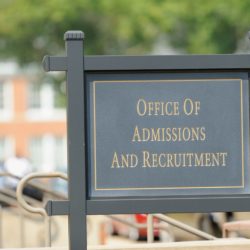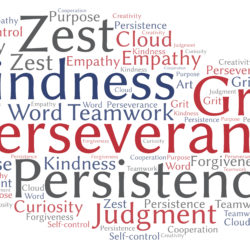The significant barriers to access imposed by the SAT, ACT and other standardized tests, and the resulting inequities, are not limited to the challenges of test administration during a pandemic.
The Independent Educational Consultants Association (IECA) and its members are deeply committed to helping students navigate the college process and find colleges where they can grow, succeed, learn, and thrive.
IECA believes in the transformative power of education, and we are devoted to our mission of ensuring that all students have access to education, regardless of race, ethnicity, socioeconomic status, learning differences or zip code. We demonstrate this commitment through (1) our work with thousands of students and families from all 50 states and around the world (2) our partnerships with colleges, schools and therapeutic programs and (3) the creation of equitable and inclusive resources.
IECA seeks to prevent barriers to that access.
In an effort to advance equity, IECA believes that all students should be able to choose how to present themselves in their college applications and whether or not to submit their standardized test scores.
Every year, many students are disadvantaged in the college admissions process because of the inequities ingrained in the SAT, ACT, and other standardized tests. Large numbers of low income students lack access to private tutors, enhanced educational opportunities, study guides, computer technology, reliable internet access and other resources typically available to wealthier students. Low income students face additional barriers associated with the financial burden of sending score reports.
These are not the only students who face barriers imposed by standardized testing. Countless students with learning differences struggle disproportionately with standardized testing. These students are often unlikely to perform as well as their neurotypical peers on standardized tests and, as a result, are frequently at a disadvantage in college admissions.
As a result of these significant barriers, many students find that their standardized test scores do not accurately reflect their skills and abilities. These students should have the opportunity to decide if their scores are considered in the college admissions evaluation process.
FairTest: The National Center for Fair and Open Testing, and many others, have provided extensive data to support the unfairness inherent in these tests. This data shows that standardized test scores are neither a strong predictor of academic achievement in college nor of graduation rates, and also establishes a correlation between test scores and income. Many colleges and universities, well aware of these factors, became test optional (or test blind). These colleges and universities reconsidered their traditional admissions requirements and found creative solutions that allowed them to continue to make thoughtful admissions decisions without standardized test scores. Studies have also shown that test-optional colleges and universities admit higher numbers of low income students, underrepresented minorities, women, and first generation students.
Colleges and universities must act now to remove the barriers to equitable access to higher education that are presented by standardized testing.
COVID-19 and the resulting complications with the administration of standardized testing has magnified these inequities. The College Board (SAT) and ACT have canceled, and continue to cancel or postpone, numerous test administrations across the world. The resulting uncertainty has also increased student stress and anxiety. The at-home AP exam was especially problematic for students without access to quiet spaces, reliable technology and internet access. Many thousands of students were unable to complete the exams, and it is impossible to quantify the numbers of students who did not even attempt the exam, because of these barriers. The at-home AP exams also presented challenges for students with learning differences who require accommodations.
According to FairTest, more than half of the nation’s four-year colleges and universities (and this number continues to grow) have responded to these challenges by becoming test optional for the high school Class of 2021. Many also have chosen to be test optional for up to a three-year pilot period, and many have made the decision to become permanently test optional. Others have adopted test blind admissions policies.
In announcing the decision to become test optional, University of Washington President Ana Mari Cauce summarizes the rationale for eliminating the SAT/ACT requirement: “Careful analysis and research showed that standardized testing did not add meaningfully to the prediction of student success that our holistic admission process already provides.” Similarly, as stated by Lieutenant Governor Eleni Kounalakis of the University of California system’s Governing Board, “These tests are extremely flawed and very unfair. Enough is enough.”
Enough is enough.
IECA is calling on colleges and universities to embrace this opportunity to become more equitable and reduce barriers by becoming test optional on a permanent basis for admissions consideration and in the awarding of merit aid, thereby increasing fair and equal access to higher education for all students. IECA is further calling on colleges and universities to allow self-reporting of test scores in order to reduce the financial burden on students.
The time is now to remove barriers, not just for the high school Class of 2021, but for all future college applicants.










